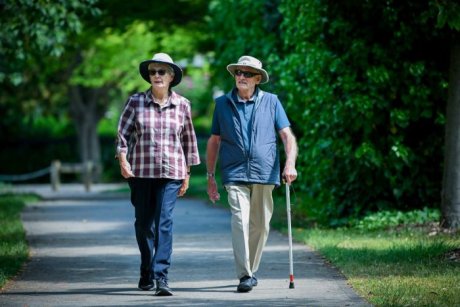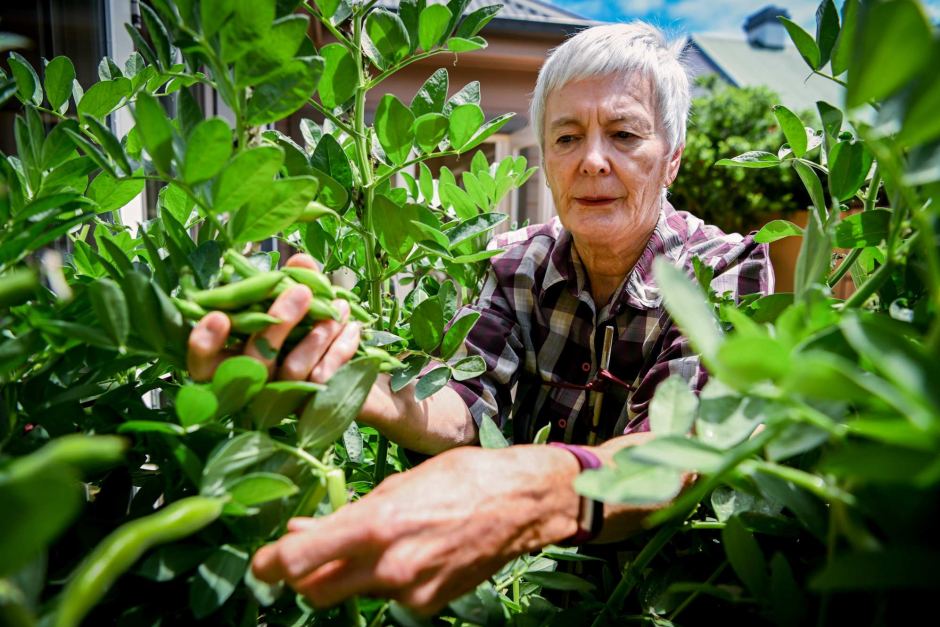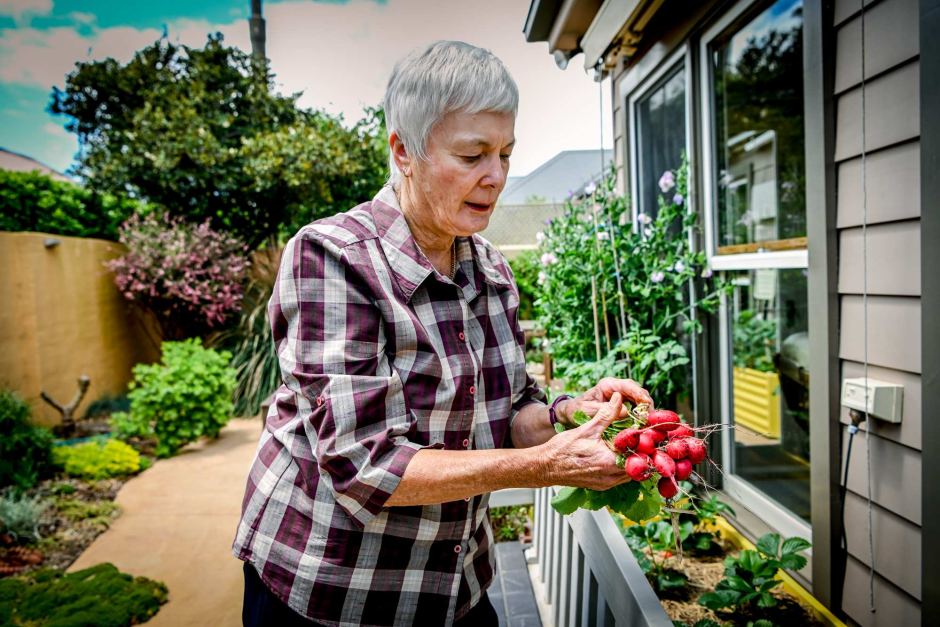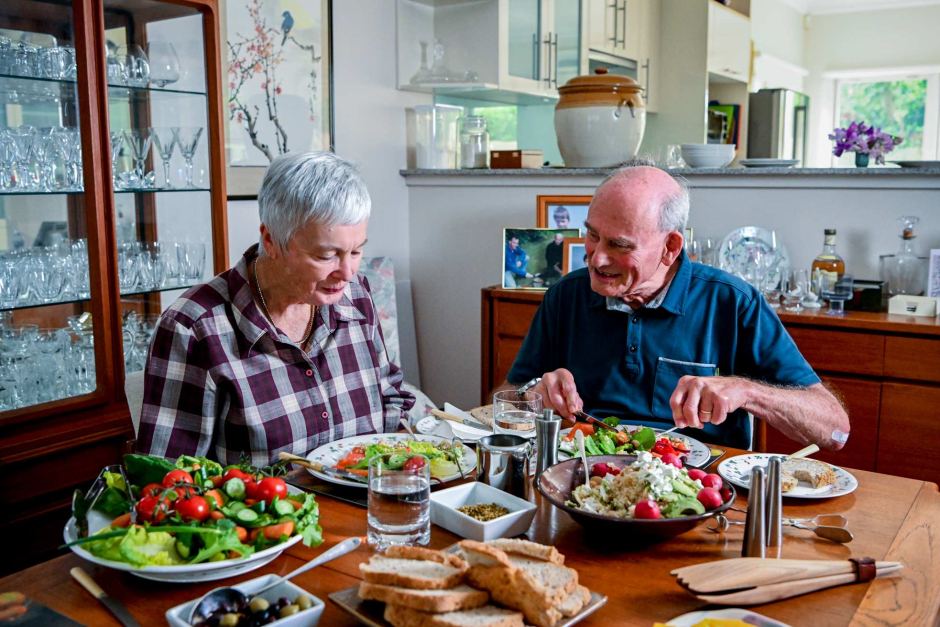Fear of dementia overtakes cancer for older Australians, as new study looks at lifestyle and diet options

The Goldsmiths are involved in the trial assessing the impact of lifestyle changes on dementia.
A ground-breaking study of 6,000 Australians is assessing whether diet and exercise can dramatically reduce a person’s risk of developing dementia — and potentially reverse some of its symptoms.
The Maintain Your Brain study is assessing people across New South Wales aged between 55 and 77 in an attempt to help prevent cognitive decline, and eventually dementia.
Participants are required to improve their nutrition by eating a plant-based Mediterranean diet and keep active with a series of simple exercises, as well as take part in brain training and mental health exercises to improve cognition.
Henry Brodaty, from the University of NSW, is leading the trial at the Centre for Healthy Brain Ageing and said its goal was to find proven ways to prevent memory loss.
“People are frightened by this,” Professor Brodaty said.
“If we do surveys of people over 65 what are they most worried about in the world?
“It’s not the economy, it’s not the climate, it’s about their health.
“It used to be cancer, now it’s dementia.
Elisabeth Goldsmith, 76, is part of the trial.

“I am hoping [it] will mean that we won’t go down the path of dementia.” Ms Goldsmith said.
“It’s been hard work, the brain part.
“I’d think, ‘wow, I’m getting on top of this,’ [then] they’d make it harder, so you’re constantly, constantly pushing.”
“But I think if we put the effort in, we shall get the benefits out.”
Ms Goldsmith is a full-time carer for her 85-year-old husband Geoff, who is vision impaired.

“What we seek to keep as long as possible is quality of life,” she said.
“If we don’t have quality of life, there’s not much left.”
The study comprises four key lifestyle-based modules. For participants to be eligible they must be eligible to complete at least two.

The Australian study builds on the Finnish Geriatric Intervention Study to Prevent Cognitive Impairment and Disability (FINGER) which involved 1,200 participants being tested in similar modules.
Michael Woodward — a leading dementia expert with Austin Health — said he believed lifestyle changes could reduce the risk of dementia by about 40 per cent.
“That includes adequate amount of exercise every day, keeping the brain active, keeping socially interactive, making sure that we have a good diet and monitoring and treating our cardiovascular risk,” Associate Professor Woodward said.
“If it’s bad for your heart, it’s also bad for your brain.”

Professor Brodaty said changing people’s behaviour was difficult.
“People will keep eating and they want to lose weight but they can’t do it, people can’t motivate themselves to do exercise,” he said.
“But if we give them a program where they can do it, epidemiological evidence tells us that they are less likely to get cognitive decline.”
The diet includes olives, chickpeas, chicken, fish and very little red meat.
“We eat a lot of tomato dishes and olive oil is paramount,” Ms Goldsmith said.
“Since being in the trial, we have a huge amount of green vegetables and eat a salad every day.
“We have spinach galore from the garden, broccoli, whatever’s growing at the time.”


Ms Goldsmith said she was already feeling the benefits of being in the study.
“I concentrate better, and I have lost nearly 2 kilos,” she said.
“I really feel it’s helped a lot because it’s a time of life when we should be slowing down and ageing, but I feel I’ve got energy.”
Professor Brodaty said the idea was to get friends and family helping with the exercises.
“The beauty of an internet-based approach is that anyone, anywhere in the world can do it,” he said.
After three years of the Maintain Your Brain trial, researchers will measure people’s brain function and see how many have developed memory loss.
The results are expected in about two years.




